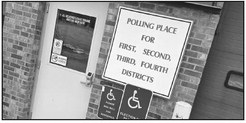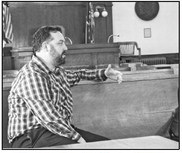Beware of pandering on tax policy
Pandering and promises are as much a part of the gubernatorial election cycle as fireworks and cookouts are of the 4th of July.
With a wide field of candidates seeking the Republican nomination in an attempt to unseat incumbent Gov. Tony Evers next fall, the candidates are working hard to separate themselves from their peers. In general, this is a good thing. Voters need to know how candidates stand on issues of importance before heading to polling places. Much like separating the wheat from the chaff, a healthy competition at the primary level ensures that the best candidate advances to the general election.
As it inevitably does in Wisconsin politics, candidates’ eyes have recently turned to tax policy as a low-hanging fruit when it comes to energizing their political base and luring others to their cause.
At the risk of using an absolute, no one enjoys paying taxes. Taxes are the price all of us pay for the services provided by various levels of governments, from ensuring the highways are maintained and clear of snow and ice to enforcing the law or providing a safety net for families who fall upon hard times.
Prioritizing how those finite tax dollars are spent is what differentiates party platforms and political debate. Again, this is a good thing, allowing voters to differentiate between candidates and being able to support those who match their ideas and goals.
Where things go off the rails is when the pandering and promises begin. Pandering can be defined as “do everything that people want to get some advantage for yourself.” Much like promising a sweet treat to a toddler throwing a tantrum in a grocery store aisle in an effort to finish shopping without causing more of a scene, pandering in politics seldom ends well for those being pandered.
Most recently, candidate Rebecca Kleefisch has taken aim at the state’s century-long tradition of progressive income taxes proposing instead a flat tax and has also floated plans to eliminate state income taxes for retirees’ income.
At best, if enacted these changes would result, not in a tax cut, but in a tax shift as lower and middle income earners and working families would pick up an ever-increasing amount of the cost of government services.
While this may play well with deeppocketed donors and older audiences, it is short-sighted to suggest this as a viable route for Wisconsin’s longterm future. Making the state more friendly to retirees does nothing to alleviate workforce shortages or stem the tide of outmigration that is resulting in the rural areas becoming more gray and less populated than in the past.
As the candidates continue to refine their policies up to the primary, voters must see through the pandering and campaign promises to the underlying realities. This is not to say that there isn’t room for improvement in the tax system or other areas of government, but rather that campaign promises may bring with them unwelcome results.




